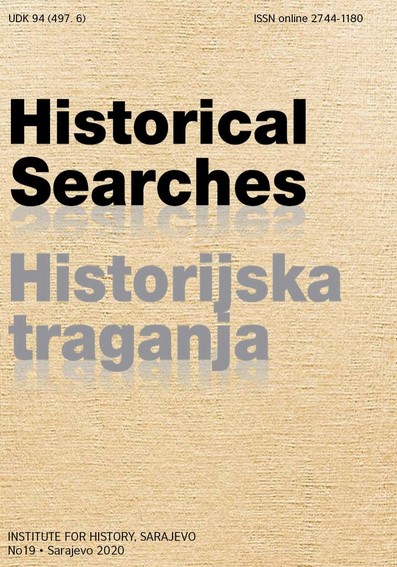MARRIAGE ACROSS BOUNDARIES: MIXED MARRIAGES AT THE SUPREME SHARIA COURT IN HABSBURG BOSNIA AND HERZEGOVINA
MARRIAGE ACROSS BOUNDARIES: MIXED MARRIAGES AT THE SUPREME SHARIA COURT IN HABSBURG BOSNIA AND HERZEGOVINA
Author(s): Ninja BumannSubject(s): History of Law, Civil Law, Social history, Politics and law, 19th Century, Pre-WW I & WW I (1900 -1919), Sharia Law
Published by: Institut za istoriju
Keywords: Mixed marriages; Sharia courts; Islamic law; Bosnia and Herzegovina; Austria-Hungary; conversion; concubinage;
Summary/Abstract: The article examines the regulation and negotiation of mixed marriages, that is marriages between persons of different religions, at Sharia courts in Bosnia and Herzegovina under Austro-Hungarian rule. Based on the analysis of documents from the Supreme Sharia court, an appeal body installed by the new Habsburg administration in 1879, this article investigates how the limitation of the competence of Sharia courts led to misunderstandings and disputes regarding the solemnization of mixed marriages. The text illustrates that mixed couples did not only transcend religious boundaries but also crossed institutional and legal, as well as social, constraints. In general, Sharia courts were banned from registering mixed marriages, which often led to strategic conversions or concubinage. While the state authorities increasingly regulated conversions and, thus, not everyone was allowed to adopt Islam, also mixed couples living in concubinage often faced legal problems around the religious affiliation and the legal custody of their children born out of wedlock. In 1912, however, the legal situation changed when a specific regulation by the Provincial Government allowed for the solemnization of mixed marriages by a kadi. However, as will be demonstrated in the article, this did not directly lead to a greater acceptance of mixed marriages by society.
Journal: Historijska traganja
- Issue Year: 2020
- Issue No: 19
- Page Range: 151-182
- Page Count: 32
- Language: English

